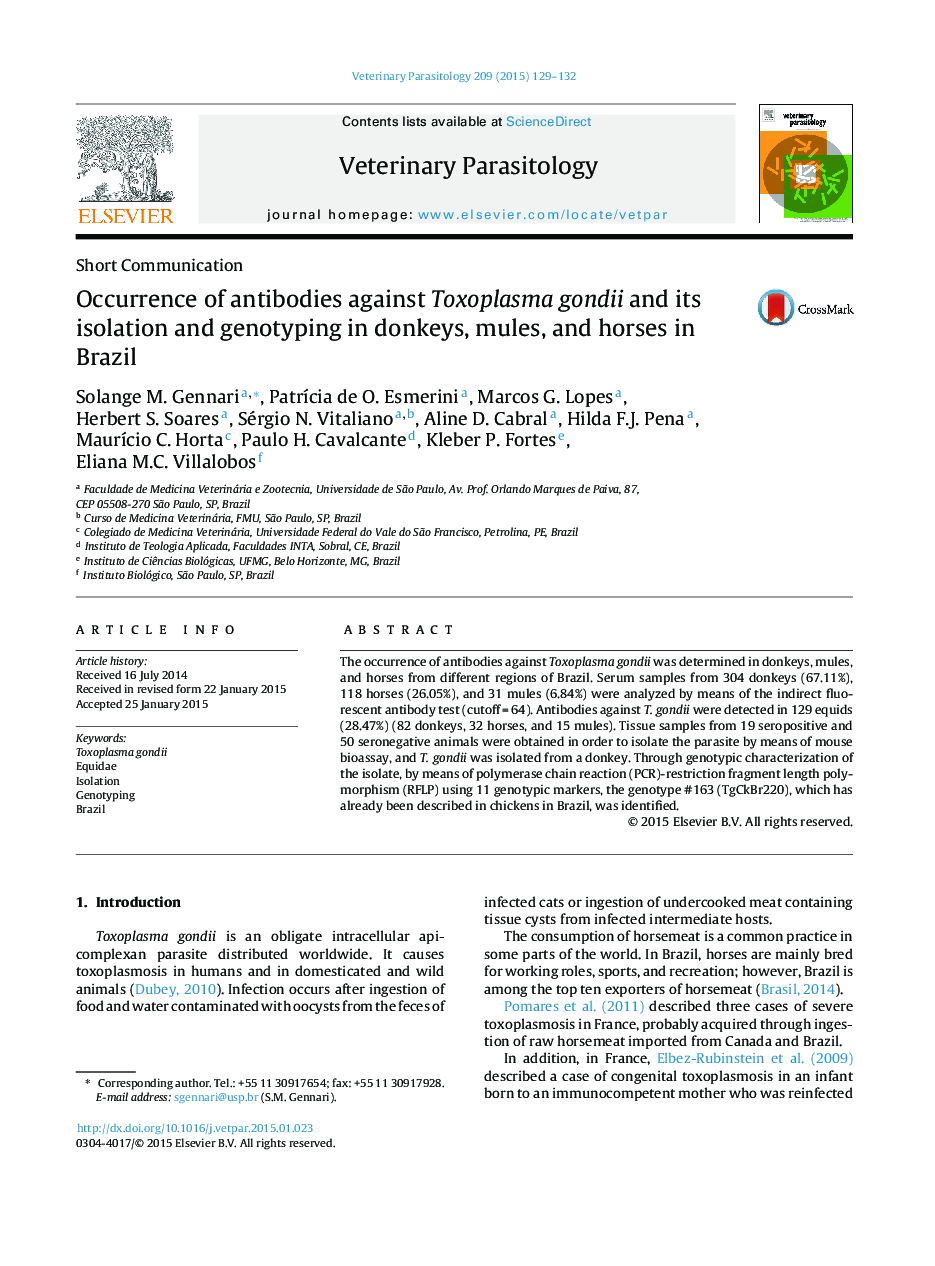| Article ID | Journal | Published Year | Pages | File Type |
|---|---|---|---|---|
| 5802568 | Veterinary Parasitology | 2015 | 4 Pages |
â¢Occurrence of antibodies anti-T. gondii was determined in donkeys, mules and horses from Brazil.â¢Tissue samples were used for T. gondii isolation by mouse bioassay.â¢For the 453 animals examined (IFAT â¥Â 64), 129 (28.47%) were positive (82 donkeys, 32 horses and 15 mules).â¢For mice bioassay T. gondii was isolated in a donkey and genotyped using PCR-RFLP (12 markers).â¢Genotype #16 (ToxoDB), previously described in a chicken from Brazil, was found.
The occurrence of antibodies against Toxoplasma gondii was determined in donkeys, mules, and horses from different regions of Brazil. Serum samples from 304 donkeys (67.11%), 118 horses (26.05%), and 31 mules (6.84%) were analyzed by means of the indirect fluorescent antibody test (cutoff = 64). Antibodies against T. gondii were detected in 129 equids (28.47%) (82 donkeys, 32 horses, and 15 mules). Tissue samples from 19 seropositive and 50 seronegative animals were obtained in order to isolate the parasite by means of mouse bioassay, and T. gondii was isolated from a donkey. Through genotypic characterization of the isolate, by means of polymerase chain reaction (PCR)-restriction fragment length polymorphism (RFLP) using 11 genotypic markers, the genotype #163 (TgCkBr220), which has already been described in chickens in Brazil, was identified.
Graphical abstractDonkey, mule and horse - intermediate host of Toxoplasma gondii.Download full-size image
